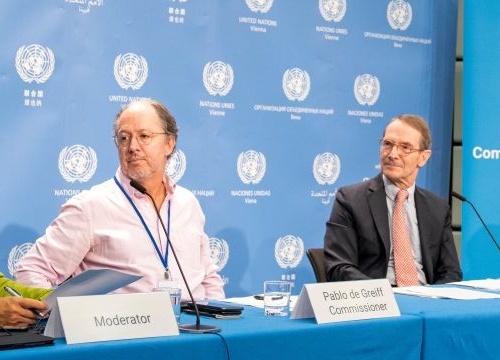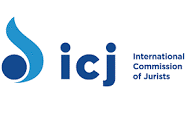UN Accountability Mechanisms
GHRP Annual Conference


UNIS Vienna/Nikoleta Haffar
Around the world, fighting impunity and ensuring accountability for violations of international human rights and humanitarian law remains a significant challenge. While the international legal framework has been well established and refined over decades, and robust national laws now exist to address impunity in many jurisdictions, important enforcement gaps remain, particularly at the international level.
The establishment of ad hoc criminal tribunals for the former Yugoslavia and Rwanda in the 1990s, followed by the adoption of the Rome Statute of the International Criminal Court, and other ad-hoc criminal tribunals have all contributed to narrowing enforcement gaps around individual criminal responsibility. At the level of state responsibility, the UN Human Rights Council (HRC) has taken action to address gross human rights violations in many country situations by establishing both long-term and ad hoc investigative mandates.
However, the existing architecture remains insufficient. Many situations involving widespread or systematic international human rights and humanitarian law violations occur in the territory or under the jurisdiction of states that are not parties to the Rome Statute, and where the International Criminal Court cannot exercise jurisdiction while contemporary political dynamics within the UN Security Council (UNSC) have rendered unlikely the possibility of referring such situations to the Court. One response to such accountability gaps has been the rapid increase in calls by victims’ groups and other stakeholders for UN bodies, including the UN General Assembly (UNGA) and the HRC, to create new and innovative mandates whose functions go beyond human rights documentation and reporting, traditionally focused on state responsibility, to include accountability functions. Over the years, these accountability mandates have evolved to include not only the identification of perpetrators, but also the collection, consolidation, and preservation of evidence for use in future legal proceedings, including criminal and administration proceedings, and the preparation of case files to support proceedings in competent jurisdictions–including, where appropriate, cooperating with the International Criminal Court and other international tribunals.
This event – co-organized with the Co-Chairs of the Human Rights Caucus Germany and Switzerland, as well as the International Commission of Jurists and the University of Oxford – will discuss UN accountability mechanisms, including independent investigative mechanisms and commissions of inquiry established by the UNGA and HRC. Panelists will notably address how to maximize their outcomes, the UNGA and UNSC roles in following up on their findings, how to maintain coherence between Geneva and New York, these mechanisms' effectiveness and efficiency, as well as the creation of a standing independent investigative mechanism.
Opening
- Felix Kirchmeier, Executive Director, Geneva Human Rights Platform
Moderation
- Ian Seiderman, Legal and Policy Director, International Commission of Jurists
Panelists
- Thomas Zahneisen, Ambassador, Deputy Permanent Representative of the Federal Republic of Germany to the UN
- Marta Valiñas, Chairperson of the Independent International Fact-Finding Mission on the Bolivarian Republic of Venezuela
- Catherine Marchi-Uhel, Head of the International, Impartial and Independent Mechanism – Syria (IIIM)
- Federica D’Alessandra, Deputy Director of the Institute for Ethics, Law and Armed Conflict (ELAC), Blavatnik School of Government, University of Oxford
Closing Remarks
- Stephen Rapp, Ambassador, former United States Ambassador-at-Large for Global Criminal Justice and Senior Visiting Fellow of Practice, Blavatnik School of Government
About the Geneva Human Rights Platform Annual Conference
You can find here information about the other panels/events that form part of the 2023 Annual Conference in New York.
This annual flagship public event open to all human rights actors – diplomats, experts, NGOs, members of UN treaty bodies, Special Rapporteurs, international organizations, National Human Rights Institutions and academics – addresses current issues and challenges in the work of Geneva-based human rights mechanisms.
Disclaimer
This event may be filmed, recorded and/or photographed on behalf of the Geneva Academy. The Geneva Academy may use these recordings and photographs for internal and external communications for information, teaching and research purposes, and/or promotion and illustration through its various media channels (website, social media, newsletters, annual report, etc.).
By participating in this event, you are agreeing to the possibility of appearing in the aforementioned films, recordings and photographs, and their subsequent use by the Geneva Academy.











